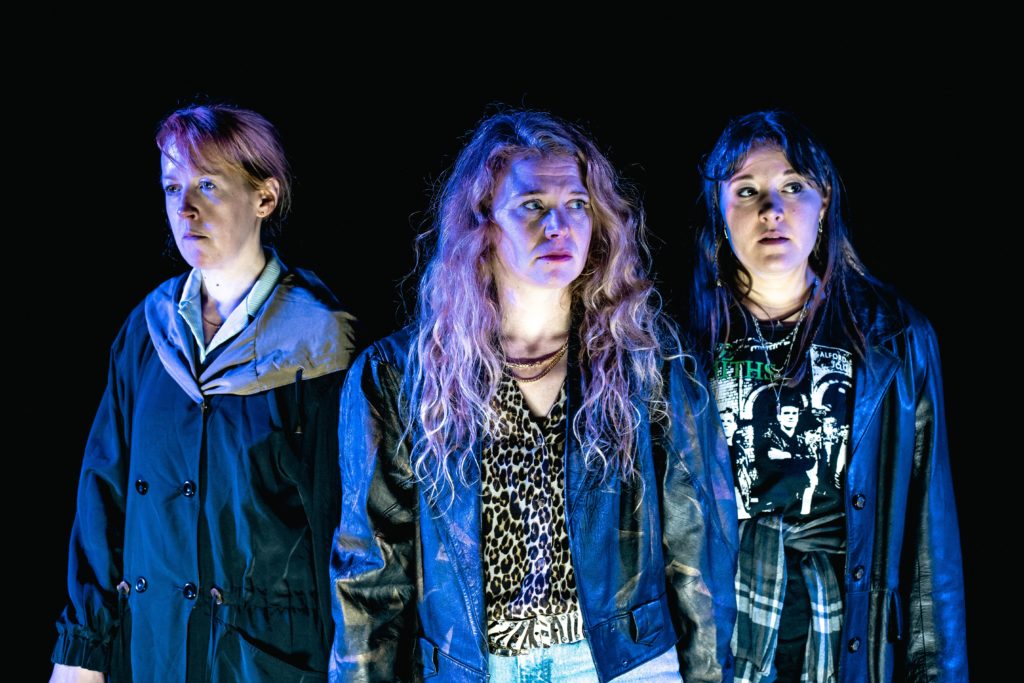
RADICAL Leeds troupe Red Ladder Theatre Company return to Ripon Theatre Festival tomorrow with a reboot of Boff Whalley’s We’re Not Going Back, marking the 40th anniversary of the 1984/85 Miners’ Strike.
75 mines, three sisters, one cause and a six-pack of Babycham go into Chumbawamba founder Whalley’s musical comedy, on a tour supported by Unite the Union that visited the former pit town of Selby for a Town Hall performance last night.
We’re Not Going Back is set in the midst of the Miners’ Strike, but no miners feature. Instead, the focus falls on the fortunes of three South Yorkshire pit-village sisters – Olive, Mary and Isabel – hit hard by the Government’s war against miners and determined to fight back with their own branch of Women Against Pit Closures.
In a celebration of the resilience of working communities, the make-and-mend fabric of family, and the power of sticking two fingers up to a government hell-bent on destruction, the sisters’ everyday squabbles collide with a strike that forces them to question their lives, their relationships and their family ties.
“I find writing women’s voices is much easier than writing men’s voices,” says Boff. “In terms of telling a story, men are not good at going into depth. My observation is that if you see two men together and one says ‘I like your shoes’, the other will say just say ‘oh’, whereas women will enjoy taking that conversation much further.”
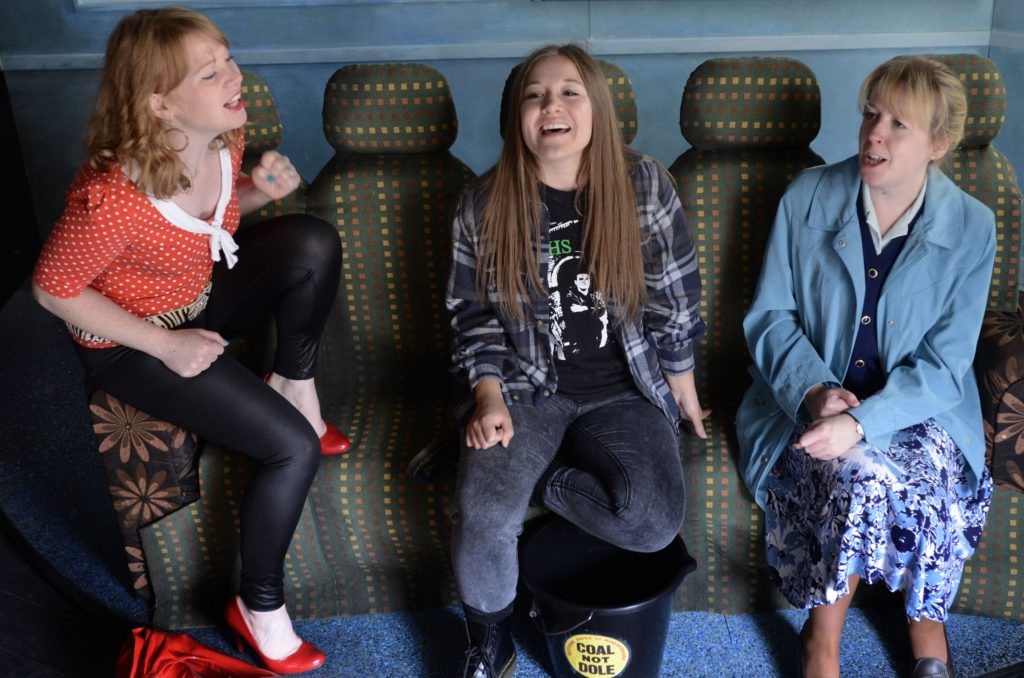
His setting is February 1984, when the rumour mill stirs with news of impending pit closures as the coal miners’ unions anxiously prepare for the imminent confrontation with the government.
Forced into unemployment, miners and their families take up the fight and become part of a battle that will change the course of history. Through music, comedy and grit, the three sisters embrace the values of the strike and underline the empowerment, determination and vulnerability communities were faced with during the toughest of times.
Originally commissioned by Unite the Union in 2014 to mark the 30th anniversary of the strikes, this rebooted version brings together all four original cast members, Victoria Brazier, Claire O’Connor, Stacey Sampson and musician Beccy Owen, who reprise their original roles.
Boff says: “It remains an important story to tell, and instead of focusing on the battle between miners, police and government – the fighting, the scabs, the police waving fivers – we shine a light on the thousands of women who organised and rallied in support the strike.
“For me, the strongest part – the heart of the miners’ strike – was always the family support, specifically the wives, mothers, sisters and daughters. Despite the outcome of the strike, all the hardship and poverty, the main memory of that year for the women was of laughter, fun and surprise – a big adventure. How to take on the machinery of the capitalist state and have a good time doing it.”
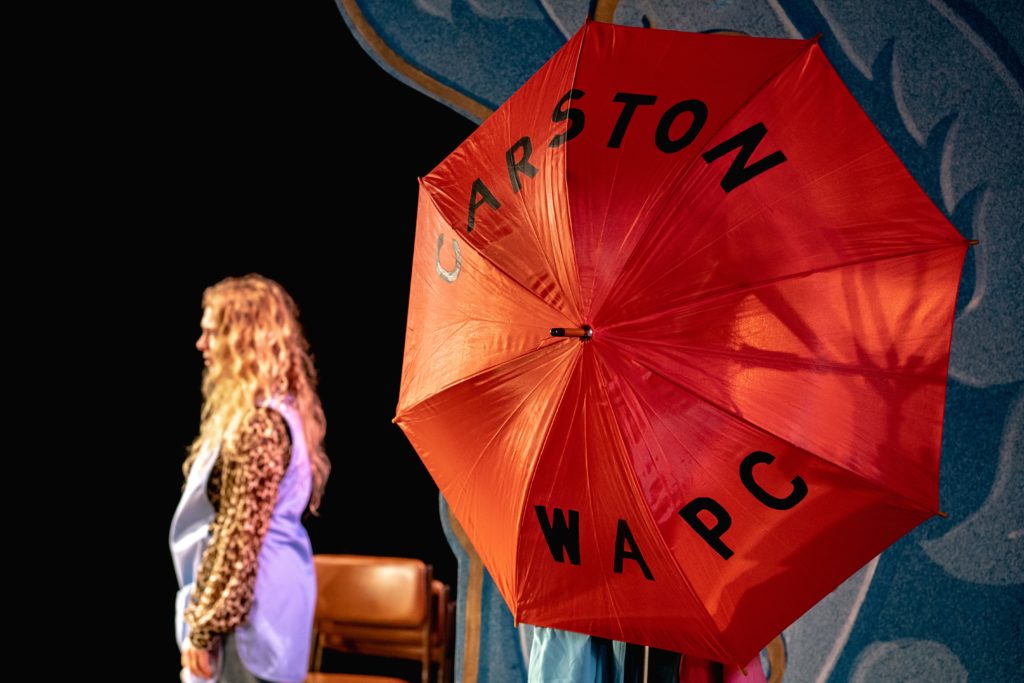
Boff’s play seeks to highlight the deep-rooted social impact of the mining community’s anger. “The focus is on what it was like in the living room,” he says. “That’s a huge part of any historic moment in history that gets overlooked, so the first thing that happened when Rod [former artistic director Rod Dixon] got the chance to do the play was I said, ‘yes, but I don’t want it to be police and pickets, with verbal and physical clashes, but instead we should meet the women who were so resilient, and the stories poured out of them as they talked in their kitchen over cups of tea.”
For this 40th anniversary revival, the new factor is the vision of director Elvi Page. “I was the newbie to the team, when everyone else came back with so much love for it as it was such a special project,” she says.
“So much of it was already there, in terms of the text and the richness of the female experience, and it felt right that if a new director was coming in ten years on, the new addition should be a female voice.
“We could really dig deeper into focusing on the women’s experience, with the men becoming less and less important to the framing. It was the women’s resistance that needed to be told.”
Boff may have jested that Elvi “slashed and burned” his text, but rather than imposing draconian changes, she took a collective approach. “Everyone is creative, all of the actors, the writer, as well as the director, so you revisit the story to find the best way to tell what we needed to say,” she says.
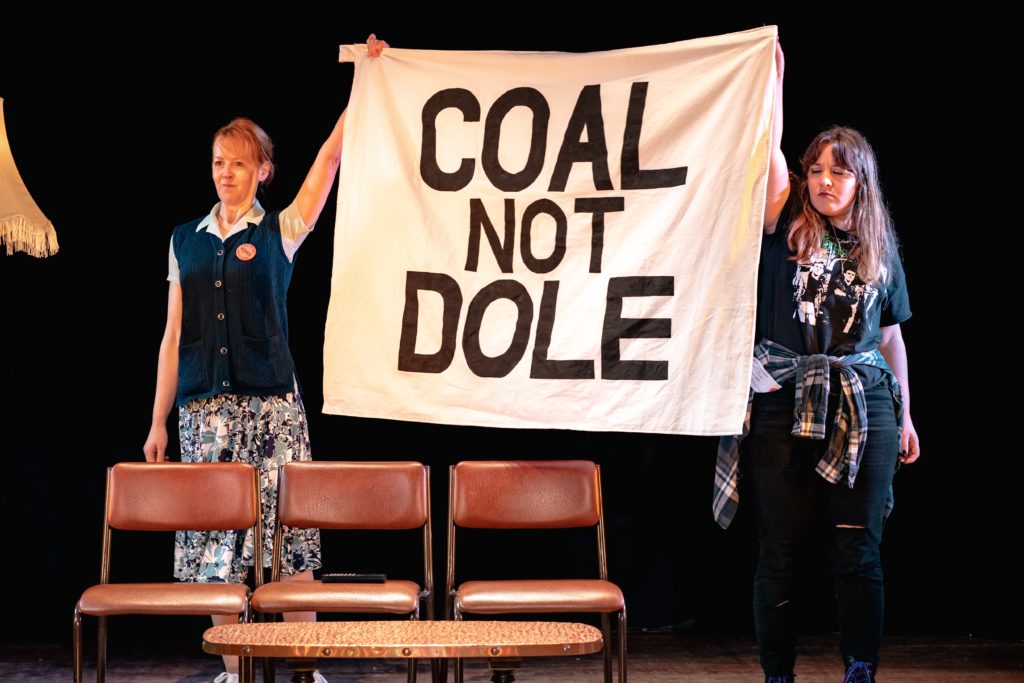
“It’s now shorter as we acknowledge that people’s appetite for watching films and theatre is all about pace, if we want to appeal to new audiences as well as to those who loved it last time, and it doesn’t feel like it has lost anything.
“The other thing that’s gone is the set. Now there’s no set at all, which makes it more nimble for touring, but it’s still so rich as a piece of theatre. It’s all about telling the story, where a set was almost slowing it down. We were thinking, ‘how would these women tell their stories’? Just chairs around a table.”
Boff notes one difference from ten years ago. “The history of the miners’ strike has changed. It’s become a big historical fact, like how the demand for a public inquiry into what happened at Orgreave has not stopped but grown,” he says.
“Now it’s part of history that young people know about. My daughter had to do an essay entitled ‘Did Mrs Thatcher engineer the miners’ strike’. I wanted her to say ‘yes’, but she wrote an evenly balanced answer, though she then concluded, ‘considering all the facts…’!”
Boff draws comparison with how the Suffragettes of the early 20th century were treated by the media. “If you go back and look at what the Daily Mail and Telegraph wrote, they were as hate-filled and bigoted as they are today, and you could not have imagined that the Suffragettes would become the heroes that they are today,” he says.
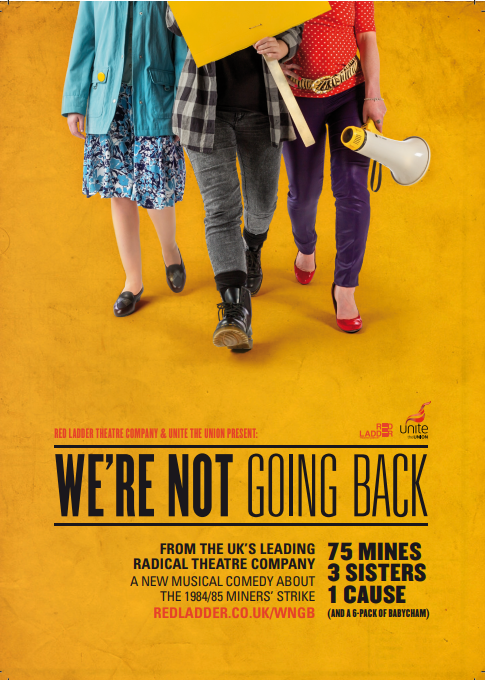
“So maybe we can get to the day where we have a sculpture of Anne Scargill [NUM president Arthur Scargill’s wife Anne Harper, activist and co-founder of the National Women Against Pit Closures movement, from Barnsley].”
Reflecting on the importance of Red Ladder’s tour, Elvi says: “I would hope that the appetite for this play continues to be as hungry as it was ten years ago, and in this 40th anniversary year, it feels vital that it reaches as many people as possible.
“You think about how it mirrors the strike situations we see now. It’s harder now, as hard as it’s ever been, when unions are weaker and people’s opinions of people going on strike is volatile.
“But one of things that people find when looking for a message to digest in this play is that when we mull over events from the past, a little distance helps people come to clearer, balanced conclusions.”
Red Ladder Theatre Company in We’re Not Going Back, Ripon Arts Hub, All Hallowgate, Ripon, Ripon Theatre Festival, July 6, 7.30pm. Box office: ripontheatrefestival.org.
